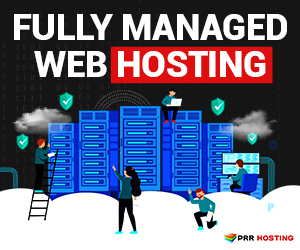Slow waiter service often results in unfavorable Yelp ratings and fewer customers in the future when a customer sits down to eat at a restaurant and just has to wait for the order too long. Slow site performance, on the other hand, can lead to bad search engine rankings, limited site traffic, and poor user experiences. Since users may leave apps that operate poorly or display slowly, it is critically important to invest in your application performance and make sure that your web resource operates just flawlessly. Is there anything else that makes site speed so important?

Conversion Rate
Several studies have shown that site speed has an impact on conversion rate. Thus, fast-loading sites not only keep more people online but also convert better than slower sites. A number of businesses have discovered that reducing page load time by a few milliseconds enhances conversions. So here is what you need to be aware of:
- Mobify discovered that reducing the load time of their site by 100 milliseconds resulted in a 1.11% increase in session-based conversion;
- After decreasing page load time in half, retailer AutoAnything saw a 12-13% boost in sales;
- Walmart noticed that a one-second increase in page load time improved conversions by 2%.
As you can see, increasing site performance and web app performance optimization are some of the most critical components of conversion rate optimization. So if you want to make sure that your target audience performs that target action on your site, then you should definitely optimize its performance.
Bounce Rate
The bounce rate is the percentage of visitors that leave your website after just scrolling one page. If a website fails to load within a couple of seconds, users are likely to close the browser tab or click away. BBC determined that every additional second it took for their sites to load cost them 10% of their overall users.
Best SEO Practices
Site performance is a significant component in Google search results because the search engine prioritizes providing relevant information to customers as fast as feasible. The performance of a site on mobile devices is extremely crucial for SEO and the website’s SERP ratings.
User Engagement
Long page load times and slow website response to user inputs contribute to a negative user experience. Waiting for the content to load irritates users, who may leave the site or buy from your competitors instead.
What Impacts Website Performance?
Well, not all websites are made fast and well-optimized. Luckily, you can always bring your website performance to a whole new level if you consider the factors below.
Page Size
The number of resources required to load a website has a significant influence on site performance. Large JavaScript files, video content, heavy CSS assets, and high-resolution photos contribute greatly to a webpage’s ‘weight’ or load time. Let’s dive into the restaurant analogy; a waiter who delivers twelve meals to a table rather than handling two or three orders will serve the table more slowly. Similarly, a website that requires more resources to load would process page contents more slowly.
Keeping websites light (containing small file sizes and fast-loading pages) has become more challenging as web technologies have advanced and websites have become more complicated. Developers may add more functionality to webpages than ever before – from single-page apps needing many JavaScript functions to pages with third-party pop-up advertising to homepages with changing backgrounds. And as a result, the average overall page weight is growing. However, it is critically important to find the best middle ground when developing your site to make it both highly functional and fast to load.
Network Conditions
Even though a website is meant to be lightweight, it may take some time to load in browsers owing to network latency. A network connection is influenced by the local networking hardware utilized and the quality of the ISP’s services. Furthermore, smartphones that connect to the Internet through 3G or 4G rather than WiFi will often have poor network speeds. Despite the fact that developers have limited control over this, there’re still tactics for providing online data quickly, even over poor connections. This is where compression, minification, and CDN hosting will come to the rescue.
Web Data Location
When content is to “travel” a great distance to reach its target destination, network latency increases. For example, if a website’s HTML and CSS files are housed in Ohio and its photos in Florida, a user on the east coast will have to wait as all of these files pass hundreds of miles to their device. And this is definitely something that you need to consider in order to optimize your website performance.
Do Things Right
Modern customers are impatient and do not have time to wait. In fact, slow page load is the second most annoying aspect of an online journey, according to online customers. So, if your site takes too long to load or the page layout is unsteady, your visitors will likely become annoyed and leave your site. And this is definitely something that you should avoid.





